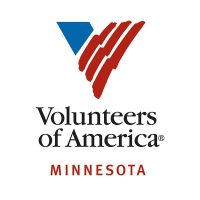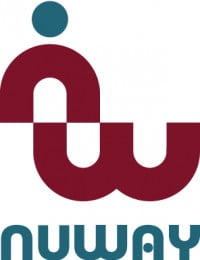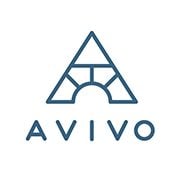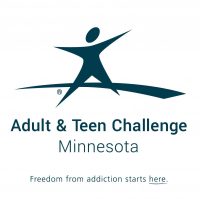
Volunteers of America of Minnesota - Senior Mental Health
Drug Rehab Center in Minneapolis, Minnesota
- Mental Health
Volunteers of America of Minnesota - Senior Mental Health, located in Minneapolis, is a non-profit organization dedicated to providing mental health services to seniors, including tailored assessments, individualized counseling, group therapy, and outreach services to reduce Senior Mental Health Stigma and improve access to care for seniors with substance use disorder.
About Volunteers of America of Minnesota - Senior Mental Health in Minnesota
Volunteers of America of Minnesota - Senior Mental Health located in Minneapolis, Minnesota, is a non-profit organization dedicated to providing mental health services to seniors. Their programs range from inpatient detox services, to individual and family counseling, to group therapy. As part of their mission, they also strive to reduce Senior Mental Health Stigma and improve access to care for seniors with substance use disorder.
Volunteers of America of Minnesota - Senior Mental Health offers a variety of services to help seniors suffering from addiction and substance abuse. This includes tailored assessments to identify the severity of the substance abuse and create an individualized plan of treatment. They also host support groups, provide individualized counseling and therapy sessions, and, in some cases, medication management. In addition, they offer outreach services to help seniors find resources in the community, such as housing and employment.
Volunteers of America of Minnesota - Senior Mental Health has been accredited by the Joint Commission, and remains committed to providing high-quality services to seniors in need. They are also licensed and certified by the Minnesota Department of Human Services and have received numerous awards and grants related to quality care and mental health services. Their unique mission to reduce stigma and improve access to care for seniors with substance use disorder has earned them recognition from the National Council on Aging.
Genders
Ages
Modality
Additional
Conditions and Issues Treated
Levels of Care Offered
This center offers a variety of custom treatment tailored to individual recovery. Currently available are Outpatient, with additional therapies available as listed below.
Outpatient Program
Outpatient treatment is considered the lower intensity level of addiction treatment. It’s ideal for early phase addiction or lower intensity addictions. It may include weekly sessions instead of daily. It may include weekly sessions instead of daily. Peer group support, 12-step programs, and individual counseling may still be involved but at a lesser frequency than an intensive outpatient program. It is a good choice for someone who doesn’t need to go through a medically supervised detox and who has a supportive home environment. It requires motivation and dedication to commit to the program without constant monitoring.
Therapies & Programs
Individual Therapy
Individual therapy involves one-on-one sessions between the patient and therapist. It provides patients with a safe environment to openly discuss personal and sensitive issues with the therapist. They find the therapist as someone they can trust. Individual therapy aims to identify the core issues that would have led the patient to substance abuse and address them effectively. The therapist can develop patient-specific customized solutions through individual therapy, which aids speedier recovery.
Couples Therapy
Couples therapy works with clients and significant others in a professional capacity to improve relationship dynamics. This can be helpful for addicts who are trying to marry the idea of recovery into their work, family, social lives – any aspect that has to do with relationships.
Through counseling sessions, addicts will have an opportunity to talk about their addiction with professional partners. These partners can offer feedback and advice on how to get sober while keeping healthy relationships intact. A good couples therapist will help addicts understand their part in an unhealthy relationship dynamic or find ways to deal with anger or resentment from significant others outside of the home.
Family Counseling
Family therapy is a group problem-solving that aims to improve communication and relationships between the addict, their family, and sometimes friends. The main goal of family therapy for drug addiction is to create an environment where communication can occur without judgment, hostility, or blame. The therapist is with the family as they learn to communicate differently, especially with the addict when s/he is using. The family can learn to reduce their enabling behavior or rally together and support each other during tough times.
An addict’s family can play a vital part in helping them to avoid relapse because they can spot the warning signs and help them get back on track before it becomes too much of a problem. Family therapy is one of the most effective ways to help addicts stay on the path to long-term sobriety. When a drug addict decides that they want to try and get sober, it takes the support of every person they love to succeed. It can be incredibly difficult for loved ones to watch an addict go through the pain and suffering of withdrawal, but by being there with them and supporting them, they can help to make sure that the addiction never returns.
Groups typically involve meetings with other recovering addicts who can relate to one another’s experiences. They might meet in person or online and typically focus on the process of staying sober rather than overcoming a specific addiction.
In these groups managed by Volunteers of America of Minnesota - Senior Mental Health, addicts can build a sense of community and develop strong emotional connections with others who understand what they are going through. These beneficial relationships can help addicts overcome their cravings and prevent relapse at any point during the recovery process.
In general, trauma therapy is a clinical process that helps individuals deal with mental stress often caused by traumatic events. The therapist helps the person identify, understand, and work through the problem. This is done with the help of talking about it in group or one-on-one counseling sessions. Therapists use relaxation, role-playing, art, and music to help the person open up about what is bothering them.
There are many different types of trauma therapists, such as psychiatric nurses and counselors. Not everyone is a good candidate for this type of therapy; it is generally reserved for people who have recently experienced a traumatic event and struggle to get over it. It is often done for children, teenage victims of sexual assault, and war veterans.
REBT, or Rational Emotional Behavior Therapy, is a way of replacing negative thoughts with positive ones. It teaches people how to deal effectively with their unwanted habits and emotions. Some common problems people have are procrastination, unhealthy eating, and angry outbursts. Learning how to deal with these problems in a productive manner makes them less apt to come back.
Cognitive Behavioral Treatment (CBT), Couples Therapy, Dialectical Behavioral Therapy (DBT), Experiential Therapy, Family Therapy, Group Therapy, Individual Therapy, Outpatient Treatment (OP), Residential Long Term (>30 Days), Trauma Therapy
Patient Experience
Experiential Therapy at Volunteers of America of Minnesota - Senior Mental Health
Experiential Therapy teaches people how to think differently about their lives and change their emotions by changing their behavior. This type of treatment is accomplished with various activities that may involve acting, props, arts and crafts, animal care, or other tools that may be effective.
This therapy aims for patients to release suppressed thoughts that cause bad feelings and drug addiction. Role-playing, arts and crafts, music, animal care, rock climbing, etc., are some of the activities used in this therapy. Gradually an individual will feel calmer and more loving which will change their perception positively. In addition to treating drug addiction, experiential therapy is beneficial for different behavioral and eating disorders.
Payment Options Accepted
For specific insurance or payment methods please contact us.
Is your insurance accepted?
Ask an expert, call (888) 674-0062
Volunteers of America of Minnesota Associated Centers
Discover treatment facilities under the same provider.
Learn More About Volunteers of America of Minnesota Centers
Additional Details
Specifics, location, and helpful extra information.
Minneapolis, Minnesota 55422 Phone Number(763) 225-4054 Meta DetailsUpdated November 25, 2023
Staff Verified
Volunteers of America of Minnesota - Senior Mental Health Patient Reviews
There are no reviews yet. Be the first one to write one.

Location
5905 Golden Valley Rd
Minneapolis, MN 55422
(763) 225-4054
Volunteers of America of Minnesota
Language
- About Volunteers of America of Minnesota - Senior Mental Health in Minnesota
- Conditions and Issues Treated
- Levels of Care Offered
- Therapies & Programs
- Patient Experience
- Payment Options Accepted
- Volunteers of America of Minnesota Associated Centers
- Additional Details
- Volunteers of America of Minnesota - Senior Mental Health Patient Reviews
Minneapolis, Minnesota Addiction Information
Minnesota is fighting an opioid epidemic that is leaving hundreds of its residents dead each year. Both prescription opioids and illicit opioids are widely abused in the Land of 10,000 Lakes. Heroin continues to be one of the most commonly abused drugs in the state, if not the most common illicit drug. Over 10% of all treatment admissions in Minnesota list heroin as their drug of choice.
The drug addiction problem in Minneapolis, Minnesota, is relatively bad. About 8.5% of people in Minneapolis abuse drugs. Additionally, there were 536 drug overdose deaths in 2016, a 20% increase from the previous year. There were 5,191 treatment admissions for primary alcohol dependence in 2016. Some of the most common programs include inpatient rehab, outpatient rehab, and sober living homes.
Treatment in Nearby Cities
- Waseca, MN (63.7 mi.)
- Prior Lake, MN (19.6 mi.)
- Andover, MN (17.0 mi.)
- Mankato, MN (65.5 mi.)
- Austin, MN (93.6 mi.)
Centers near Volunteers of America of Minnesota - Senior Mental Health
The facility name, logo and brand are the property and registered trademarks of Volunteers of America of Minnesota - Senior Mental Health, and are being used for identification and informational purposes only. Use of these names, logos and brands shall not imply endorsement. RehabNow.org is not affiliated with or sponsored by Volunteers of America of Minnesota - Senior Mental Health.







